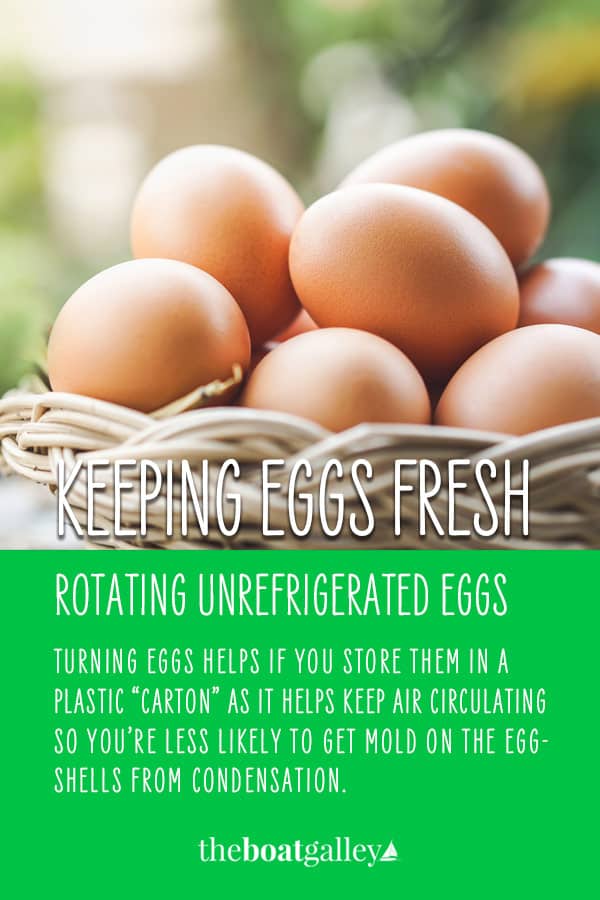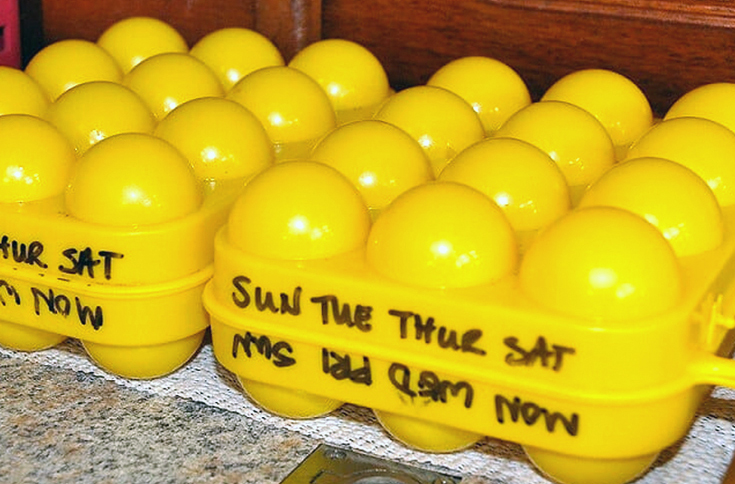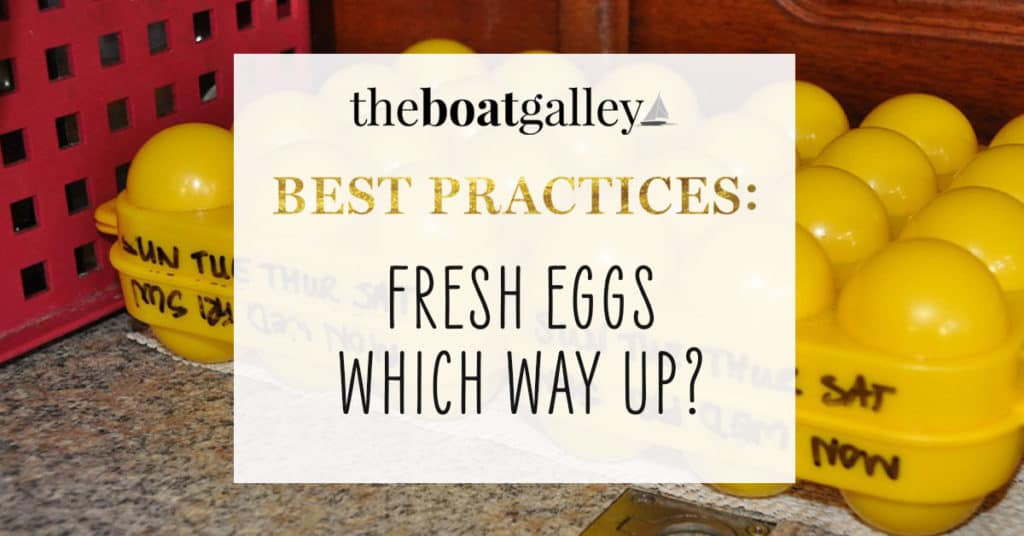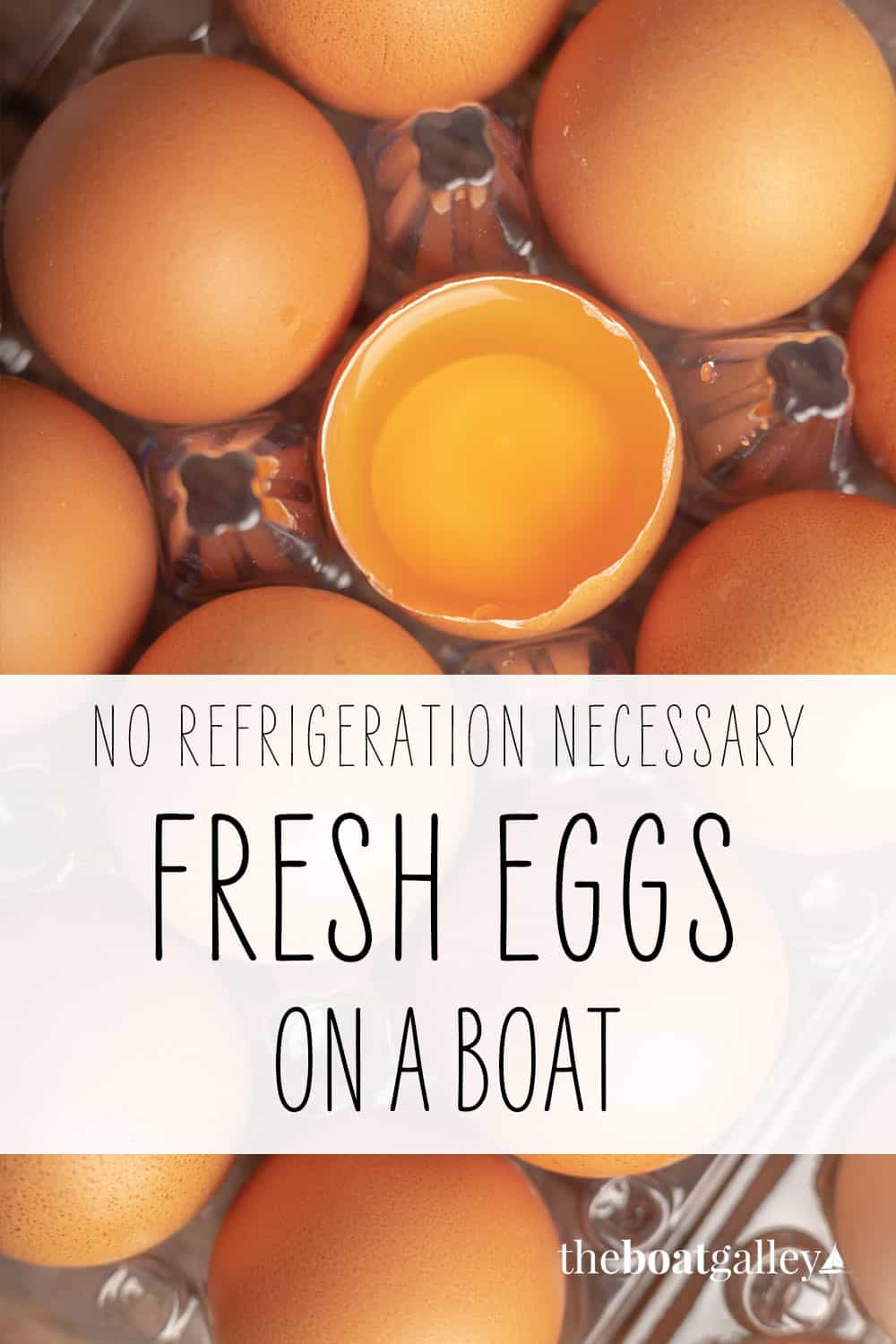
If you’re cruising outside the US, you most likely get non-refrigerated eggs and don’t store them in the refrigerator. (Read more about storing eggs outside the refrigerator.)
Many people who store eggs without refrigeration like to turn them over periodically so that the yolk doesn’t “stick” to one side. Turning them also helps if you store them in a plastic “carton” such as these as it helps keep air circulating and thus you’re less likely to get mold on the eggshells from condensation.
I had always heard that you could only store eggs that had never been refrigerated this way. Recently, however, a couple of cruisers — including Sheryl Shard of Distant Shores TV — have told me they’ve had great luck storing eggs that were refrigerated in the store without refrigeration by flipping them every day or two so that the membrane inside the egg does not dry out and let bacteria in.
But it can be hard to remember if you’ve already flipped them today . . . or if someone else on board may have. Reader Jeanne Walker aboard Eagle in the Sea of Cortez came up with this simple way. Of course, it assumes that you know what day it is 🙂


Carolyn Shearlock has lived aboard full-time for 17 years, splitting her time between a Tayana 37 monohull and a Gemini 105 catamaran. She’s cruised over 14,000 miles, from Pacific Mexico and Central America to Florida and the Bahamas, gaining firsthand experience with the joys and challenges of life on the water.
Through The Boat Galley, Carolyn has helped thousands of people explore, prepare for, and enjoy life afloat. She shares her expertise as an instructor at Cruisers University, in leading boating publications, and through her bestselling book, The Boat Galley Cookbook. She is passionate about helping others embark on their liveaboard journey—making life on the water simpler, safer, and more enjoyable.


John Ahern on Facebook says
cruising is work…lol
Sherry says
Where do you buy plastic egg cartons like in the photo?
Carolyn Shearlock says
They’re available on Amazon — https://amzn.to/3h5gt4D — and at Walmart, Target and almost every camping store. I actually prefer the Lock & Lock ones — http://www.amazon.com/dp/B0018AIF8A/?tag=theboagal0a-20 — as they’re tougher and not as likely to pop open. I wrote a post on the differences if you want to read more — https://theboatgalley.com/egg-cartons/
Tracy says
Do either of these handle the extra large eggs you get from free range growers? I can’t shut some of my containers with the larger eggs
Carolyn Shearlock says
They’ll take extra large eggs as classified in the supermarket. If your eggs are larger than that, they probably won’t close.
Lampie says
You can chill eggs that have already been chilled – the problem isn’t the temperature, it’s the fact they’ve been washed.
If you coat them in mineral oil, you can store them at room temperature for a month or more
Roz Dolkens says
Easy, he never would!
Mack Boniface says
daily log is the only way i can remember what day it is
CherylAnn Falconer says
I place a small amount of blue tape that says up on the side I change them to & record in daily log
Jerri Miller says
Quick question. I heard some people complaining that eggs mold in the plastic containers. I brought cockroaches aboard with the cardboard ones and now feel my hands are tied. How prevalent is the mold issue?
The Boat Galley says
I have never had a problem with mold. I know a number of people who have had some and solved it by drilling an 1/8″ hole in each egg section — it’s a small enough hole that should an egg break, not much will ooze out due to surface tension (but no, it’s not totally contained) yet enough to provide air flow to combat the mold..
Herman Hess says
I’ve had to use a daily change system before. We marked the containers with “EVEN” and “ODD” to correlate to the days of the month.